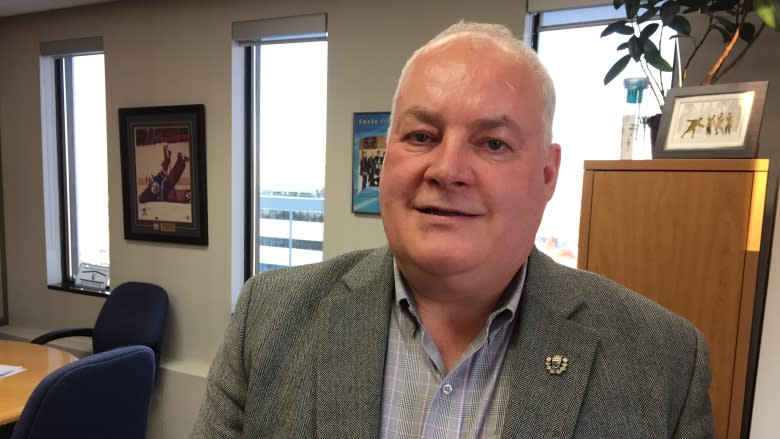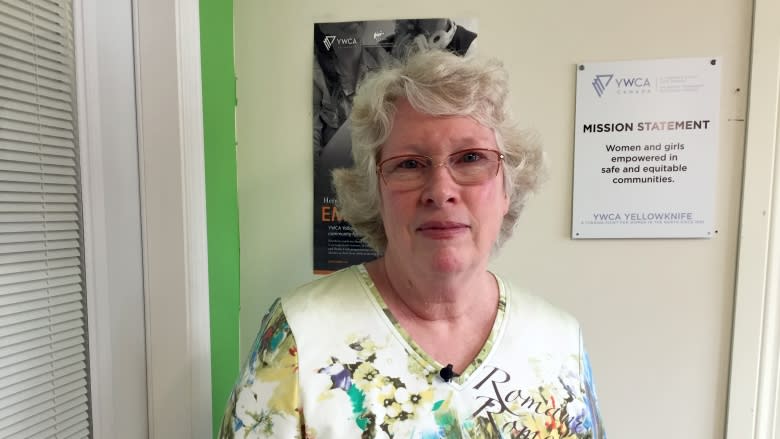Federal housing strategy raises hopes in the North, but details still sparse
It's a $40 billion dollar, 10-year plan, but it remains just an outline.
"Right now the devil is in the details," said Tom Williams, president and CEO of the NWT Housing Corporation of the federal government's housing strategy, announced Wednesday. "There are still a lot of unknowns ... for example what the allocation will be for the North."
What's known so far is the federal government aims to reduce chronic homelessness by 50 per cent by:
- Building 100,000 new public housing units.
- Making repairs on 300,000 older public housing units.
- Creating or making repairs to 7,000 new shelter spaces.
- Implementing a rental subsidy that would amount to $2,500 per year per recipient.
- Creating a national housing co-investment fund that would provide low-interest loans to developers whose projects meet a set of environmental, economic and accessibility standards.
Included in the strategy is $300 million for Northern housing, which was announced in the 2017 federal budget. Of that, $240 million is earmarked for Nunavut, $36 million for the Northwest Territories, and $24 million for Yukon.
Over at the YWCA office in Yellowknife, executive director Lyda Fuller reminisced about how 10 years ago, her organization put together a research plan that made a case for a federal housing strategy. She said at the time, her Nunavut colleagues wanted to call the plan "Little Voices of Nunavut," because they felt nobody ever listened to them. Fuller was in awe of how much she feels had changed since then.
"For the first time ever in my working life, everything I asked for was included in the federal announcement," she said, holding the 10-year-old report to her chest. "So I'm just really, really pleased that we were heard."
Support for communities needed, say advocates
Fuller was specifically pleased to see the federal government commit 25 per cent of the funding to women, girls and their families — an aspect that also elicited approval from Bree Denning, the executive director of the Centre for Northern Families.
"I think that that's a really important consideration," she said. "Of course as a women's society, we see ways in which women are vulnerable to unstable housing."
Denning also noted that alleviating homelessness across the territory's 33 communities is going to take a lot of funding. Not only is the cost of building higher in the North, she said, but many Northerners are chronically homeless for other reasons than lack of housing. She called for more services and supportive housing that would help people manage their lives once they get roofs over their heads.
She pointed out that the City of Yellowknife has been progressive in tackling homelessness with its own 10-year housing strategy, but the capital city can't be the only place where services and support are available.
"There definitely needs to be a lot of support in communities," she said. "Many of the individuals that we have, that are homeless here in Yellowknife, are homeless in Yellowknife because there weren't services for them in their communities."
In Ottawa, N.W.T. LIberal MP Michael McLeod had nothing but praise for the announcement. He said he agreed with his colleague, Spadina-Fort York Liberal MP Adam Vaughan, who said it's the best housing policy the Government of Canada has ever produced.
"It's really where we wanna be," he said. "It's a significant, ground-breaking investment."
Over in Nunavut, Nunavut Housing Corporation president Terry Audla, said the more funds the better — because it means more homes — but he says money for programming would help as well.
"The national housing strategy needs to put emphasis on the unique aspects of the territories," he said. "Especially Nunavut — when it comes to how much of a crisis it is here in Nunavut."
When it comes to finding out more details of the strategy, McLeod and Williams are both hoping more comes into focus by the time the federal government announces the 2018 budget, in March.
Correction : An earlier version of this story incorrectly said $60 million in housing funds would be directed to the N.W.T. In fact, the N.W.T. was allocated $36 million and Yukon was allocated $24 million.(Nov 24, 2017 3:29 PM)




